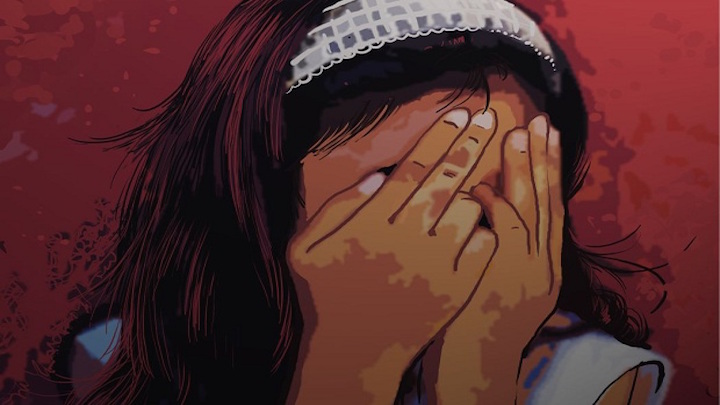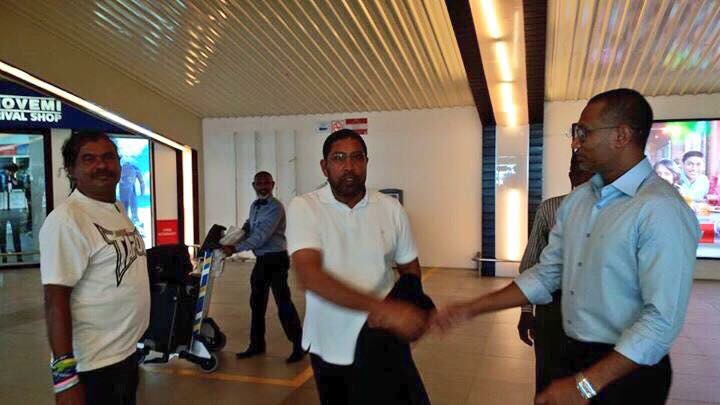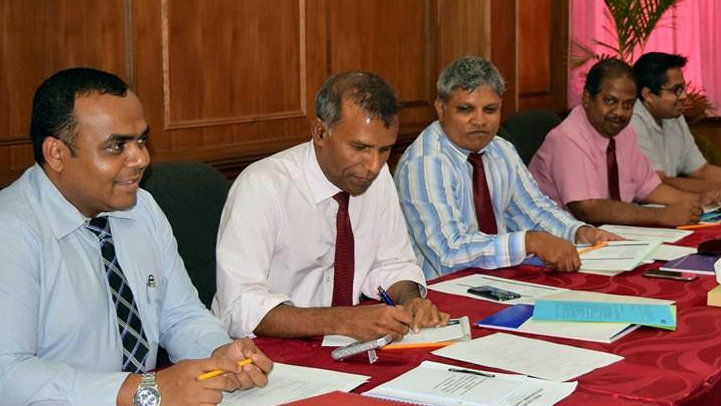Underaged female victims of a child prostitution ring uncovered in Fuvahmulah last week are not pregnant despite media reports to the contrary, the police have said.
Chief Superintendent Hamdhoon Rasheed told the press today that the 16-year-old and 14-year-old girls have undergone pregnancy tests.
The police began investigating the case on July 5 based on intelligence information, Rasheed said, and 11 men have been arrested so far on suspicion of drugging, blackmailing, and forcing children into prostitution.
Ten suspects were taken into custody on Friday. The Fuvahmulah magistrate court granted 15-day extensions of remand detention the following day.
The eleventh suspect was arrested today and police are searching for more suspects.
Rasheed revealed that five of the suspects have criminal records for assault, theft, drug abuse, and sexual offences.
The suspects are all Maldivian men aged between 20 and 55, he said, and include those who forced the children into prostitution and others involved in the prostitution ring.
Rasheed did not reveal any further details.
CNM reported yesterday that the police began investigating the case upon learning that the 16-year-old victim of the prostitution ring was pregnant. Sources from Fuvahmulah meanwhile told newspaper Haveeru that the girls gave police a list of 50 suspects.
According to CNM, the Fuvahmulah hospital had alerted the police and the gender department last week, prompting an immediate investigation on the island.
The girls were tricked into using drugs and filmed naked, CNM reported. The men threatened to leak the videos and blackmailed the minor.
In February 2014, seven men were arrested from the island of Thinadhoo in Gaaf Dhaalu atoll on suspicion of forcing a 16-year-old girl into child prostitution.
In the first official acknowledgement of child prostitution in the Maldives, then-Gender Minister Azima Shukoor revealed in May 2013 that children were “being used as sex workers, where the children are sent to places as a means to pleasure people and to gain an income from such a trade.”
In June 2013, multiple sources told Minivan News that child prostitution was prevalent in the country, ranging from male benefactors grooming children with ‘gifts’ to parents actively exploiting their children.
A study focusing on Laamu atoll conducted by Consultant Clinical Psychologist Maldives Institute for Psychological Services, Training & Research (MIPSTAR), Dr Aishath Ali Naaz, showed that child prostitution was so “common” among minors that it was considered a normal activity.
She identified a “gradual process” of minors being “groomed” by adults via the internet and/or social media, with children taken to known “spots” and introduced to those involved in the sex trade.
In other instances, the minors are pushed to provide nude photos, and then emotionally blackmailed with threats that the pictures will be posted on the web, and ultimately recruited into prostitution.


